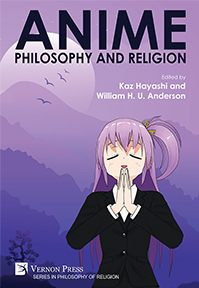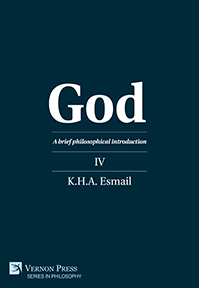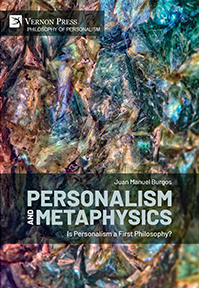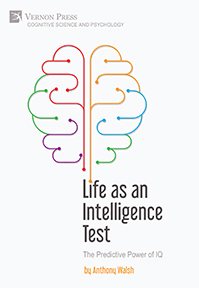Search
Browse
by Publication status
by Subject
Anthropology (26) Art (122) Business and Finance (25) Cognitive Science and Psychology (53) Communication and Journalism (43) Economics (61) Education (65) History (145) Human Geography (22) Interdisciplinary (40) Language and Linguistics (128) Law (16) Music Studies (18) Philosophy (153) Political Science and International Relations (99) Sociology (295) Statistics and Quantitative Methods (19)by Series
Series in Literary Studies (62) Series in Philosophy (58) Series in Education (49) Series in Sociology (42) Series in World History (31) Series in Politics (30) Bridging Languages and Scholarship (27) Series in Language and Linguistics (25) Cognitive Science and Psychology (20) Series in Philosophy of Religion (20) Series in American History (19) Series in Art (19) Critical Perspectives on Social Science (16) Series in Cinema and Culture (16) Curating and Interpreting Culture (15) Series on the History of Art (14) Series in Anthropology (13) Series in Critical Media Studies (13) Economics (13) Series in Business and Finance (12) Series in Music (12) Series in Communication (9) Series in Performing Arts (9) Philosophy of Personalism (8) Series in Law (8) Series in Economic Methodology (7) Series on Climate Change and Society (7) Classics in Economics (6) Series in Economic Development (6) Women's Studies (6) Philosophy of Forgiveness (5) Series in Built Environment (5) Series in Economic History (5) Series in Philosophy of Science (4) Series in Social Equality and Justice (4) Series on the History of Science (4) Serie en Sociología (3) Series in Contemporary History (3) Series in Creative Writing Studies (3) Series in Design (3) The Interdisciplinary Built Environment (3) Serie En Estudios Literarios (2) Series in Heritage Studies (2) Series in Innovation Studies (2) Serie en Ciencias Políticas (1) Serie en Comunicación y Medios (1) Serie en Entorno Construido (1) Serie en Estudios Culturales (1) Serie en Filosofía (1) Serie en Filosofía de la Ciencia (1) Serie en Música (1) Series in Classical Studies (1) Series in Economics of Technological Change (1) Series in Philosophy of Race (1) Series in Urban Studies (1)by Language
English Spanishby Author
Browsing with filters

Anime, Philosophy and Religion
Edited by
Kaz Hayashi, Bethel University
and William H. U. Anderson, Concordia University of Edmonton in Alberta
Availability: In stock
362pp. ¦ $96 £81 €89
Anime is exploding on the worldwide stage! Anime has been a staple in Japan for decades, strongly connected to manga. So why has anime become a worldwide sensation? A cursory explanation is the explosion of online streaming services specializing in anime, like Funimation and Crunchyroll. Even more general streaming services like Netflix and Amazon have gotten in on the game. Anime is exotic to Western eyes and culture. That is one of the reasons anime has gained worldwide popularity. This strange aesthetic draws the audience in only to find it is deeper and more sophisticated than its surface appearance. Japan is an honor and shame culture. Anime provides a platform to discuss “universal” problems facing human beings. It does so in an amazing variety of ways and subgenres, and often with a sense of humor. The themes, characters, stories, plotlines, and development are often complex. This makes anime a deep well of philosophical, metaphysical, and religious ideas for analysis. International scholars are represented in this book. There is a diversity of perspectives on a diversity of anime, themes, content, and analysis. It hopes to delve deeper into the complex world of anime and demonstrate why it deserves the respect of scholars and the public alike.
The Aestheticization of History and the Butterfly Effect
Visual Arts Series
Edited by
Nancy Wellington Bookhart, Institute for Doctoral Studies in the Visual Arts
Availability: In stock
262pp. ¦ $89 £75 €82
'The Aestheticization of History and the Butterfly Effect: Visual Arts Series' introduces the audience to philosophical concepts that broach the beginning of the history of Western thought in Plato and Aristotle to that of more modern thought in the theoretician Jacques Rancière in which the main conceptual framework of this anthology is predicated. The introduction is mainly concerned with Rancière’s concept of the distribution of the sensible, which is the arrangement of things accessible to our senses, what we experience in real-time and space— compartmentalization and categorization of all things. These things do not just involve tangible items, but audible speech, written language, and visibilities. Rancière’s theory of the regimes of art is undertaken as the unfolding of the distribution. Such is evoked in the various genres of visual art forms, from two-dimensional paintings to three-dimensional sculptures and architectures. Understanding the aesthetic regime of art is crucial for grasping how art performs time travel. One way of understanding this phenomenon is in terms of embodied philosophy imbued vis-à-vis art forms, which are subsequently challenged by contemporary artists. The contributing essays examine these reiterations, reevaluations—performances. Aesthetics is a term deriving from the 18th-century European Enlightenment. It is here that aesthetics as the study of beauty is probed for its political potential after the failure of the French Revolution. Many major thinkers during this period signed on to the aesthetic moment, recognizing that Reason in its present state failed to develop humankind beyond barbarism. J.E.B. Stuart's statue is part of an equestrian theme that approximates the Western canon of power and class in the pursuit of domination. But such power and domination will be dethroned in the restaging of history and the redistribution of said canon. This reimagining of the form not only alters perception but constitutes a new narrative.
God: A brief philosophical introduction IV
K.H.A. Esmail, University of Cambridge
Availability: In stock
521pp. ¦ $86 £70 €79
This is a clear and concise and original investigation of God’s nature and existence. First of all, it considers (among other things) two of God’s traditional properties: being all-knowing and being all-powerful. It argues he cannot possess these properties. But, it argues this is in accord with him being worthy of worship. Secondly, it introduces the notion of evil being “overridden”. It argues he has to bring about other free living things and it is plausible they have to be liable to experience evil due to their conditions. But, it argues the evil in this world is “overridden”. Thirdly, it considers the principal arguments for the claim he does not exist. (They refer to the evil in the world.) It argues they do not establish sufficient grounds for this claim. Finally, it considers some well-known arguments for the claim he exists. It argues they face difficulties. It sets out other arguments: eg, some arguments to increase any degree of belief one has that God can exist. It includes a number of Appendices: God’s sovereignty; Are there sufficient grounds for the claim that, very probably, God does not exist?; Theodicy and some theodicies; Some further remarks on God and time; Some further remarks on a living thing which possesses the power to do this or that freely; Some remarks on God being simple; Some remarks on God being present in a spatial realm and God being present in a non-spatial realm; ... . It covers as a whole the principal parts of the Philosophy of Religion. It unifies these parts to a significant degree. It proceeds regularly by way of formal and clear arguments. It will be of interest to advanced students and specialists in Philosophy, Religious Studies, and Theology. Given its explanation of key terms, its jargon-free language, its clarity and brevity.... , it will be of interest to others, too.
Personalism and Metaphysics
Is Personalism a First Philosophy?
Juan Manuel Burgos, Universidad Villanueva, Spain
Availability: In stock
112pp. ¦ $51 £41 €46
Personalism seeks to understand the person in its richness, complexity, and unity, and, to achieve this goal, it has developed a rich and solid anthropology as well as an ethic of the person that is having repercussions in the philosophical and sociopolitical sphere. But what is the value of this philosophy? Does it offer a mere description of the reality of a phenomenological type, or does it penetrate to the bottom of what exists, offering its intelligible essence? Does it offer an ultimate explanation of the person, or is her vision subordinated to a deeper and more decisive one that would correspond to metaphysics? To answer these questions, the author, an international expert in personalist philosophy, first defines the various meanings in which the term metaphysics can be understood and, secondly, does a comparison between personalism, in particular, integral Personalism, and the metaphysics of being. The analysis concludes that personalism can be considered a first sectoral philosophy, that is, a philosophy that does not need other philosophical referents to establish itself as a philosophy thanks to its direct access to experience, where the person is found. This conclusion is based on the epistemology of integral experience and imposes a review of the traditional role of metaphysics and its connection with anthropology in general and Personalism in particular.
Life as an Intelligence Test: The Predictive Power of IQ
Anthony Walsh, Boise State University
Availability: In stock
115pp. ¦ $50 £40 €45
This book examines intelligence as it applies to various facets of human life. It explores the evolutionary origin of intelligence and the genetics and neurobiology of intelligence. Every human being is intelligent, but some are more intelligent than others. We know this both by observing different people’s behavior and position in life and by their different intelligence quotient (IQ) scores. Most of the business of life can be conducted on a basis of habit, with little need for exceptional intelligence, which is irrelevant for many day-to-day pursuits. However, people of higher intelligence do much better in life than those of lower intelligence in so many ways. They attain higher social class, better physical and mental health, are less likely to be criminals, and many other things. IQ tests measure different cognitive abilities, but there is a factor common to them all that psychometricians call Spearman's g, or simply g. What this means is that in tasks that tax the brain, however different they may be from one another, if a person is good at one mental task, he or she is likely to be good at others, although not necessarily to the same degree.






